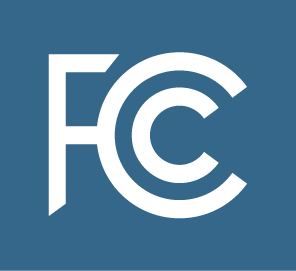FCC proposes 6 GHz unlicensed sharing, but public safety, utilities express concerns
FCC commissioners unanimously voted to propose rules that would permit shared unlicensed use in the 6 GHz band—spectrum currently used for microwave backhaul links—while indicating that similar rules would be adopted in the 5.9 GHz band that has been reserved for dedicated short-range communications (DSRC) between vehicles.
Commissioners cited the need for additional unlicensed spectrum to address consumers’ ever-growing appetite for data that is creating significant congestion existing unlicensed bands, notably those at 2.4 GHz and 5 GHz.
“It is undisputed that the exponential growth of wireless data, especially over unlicensed networks, has led to severe congestion in our highly-prized unlicensed spectrum bands, primarily 2.4 and 5 GHz,” FCC Commissioner Michael O’Rielly said during yesterday’s FCC open meeting. “To be clear, this is a prime location for unlicensed services for multiple reasons, but particularly because it is adjacent to 5 GHz and complements the forthcoming clearing efforts in the C-band downlink band (3.7-4.2 GHz). Moreover, studies in the record demonstrate that unlicensed spectrum at 6 GHz can likely be done without causing harmful interference to existing incumbents.
“Now, if we could only open up the 5.9 GHz Band for unlicensed use as well—for which I believe there are four solid votes in favor—we would really be on to something special, as it’s the missing link between the 5 GHz and 6 GHz bands.”
Indeed, FCC Commissioner Jessica Rosenworcel—the lone Democrat on the commission—said that a review of 5.9 GHz usage is “long overdue” and expressed support for the 6 GHz proposal, noting that 9 billion existing devices are causing congestion in existing unlicensed bands.
“It’s an ideal place to explore Wi-Fi expansion, because it’s close to our existing Wi-Fi bands,” Rosenworcel said. “It also offers an opportunity to introduce wider channels—channels that will take advantage of the new 802.11ax, or Wi-Fi 6, standard and deliver speeds even faster than 1 gigabit per second.”
FCC Commissioner Brendan Carr echoed this sentiment.
“As we move toward 5G, demand on our unlicensed bands will only increase, from the Internet of Things to smart [agriculture] to telehealth applications,” Carr said. “We need more spectrum to connect billions of new devices. That’s why today’s proceeding is so important. It proposes to add 1200 MHz of prime mid-band spectrum for unlicensed use. That’s five times the spectrum available today at the 2.4 GHz and 5 GHz bands.”
While there is consensus that additional unlicensed spectrum could be useful, many representatives of key incumbent users expressed concern about the ability to share the spectrum without introducing harmful interference to existing microwave links that support critical communications.
“The FCC has made it clear that it is politically intent on opening the 6 GHz for unlicensed sharing,” Stu Overby, a member of the National Public Safety Telecommunications Council (NPSTC) said during an interview with IWCE’s Urgent Communications. “Let’s hope that the FCC is equally intent on protecting the thousands of microwave links from interference that sharing possibly could cause.”
Enterprise Wireless Alliance (EWA) President and CEO Mark Crosby agreed.
“I suspect that the incumbent users of this band consider their wireless operations just as indispensable as the promise of yet more ‘consumer products,’” Crosby said in a statement provided to IWCE’s Urgent Communications. “Let’s hope that the automated frequency coordination system actually works in practice, rather than in theory.”
Utilities Technology Council (UTC) President and CEO Joy Ditto urged the FCC to reconsider its proposal for 6 GHz spectrum that utilities use to support communications systems that coordinate their delivery of electricity, gas and water services that are vital to the economy.
“Although we understand the need for expanded wireless broadband, the risk of radio frequency interference to utilities’ mission-critical networks outweighs the potential benefits from unlicensed use of the band,” Ditto said in a prepared statement. “We are greatly concerned that the proposed rulemaking as drafted would not sufficiently mitigate potential interference to utility systems from these new unlicensed operations.
“Electricity is essential to deployment of telecommunications and, in fact, any modern device or machine. Rather than negatively impact utility operations which, in turn, impacts all other facets of the economy, we urge the FCC to rethink their proposal. We look forward to raising these concerns with the Commission. We are confident the record will demonstrate that the risks to utility and other CII networks is too great, and that there are other spectrum bands more suitable to achieve the Commission’s goals.”

















